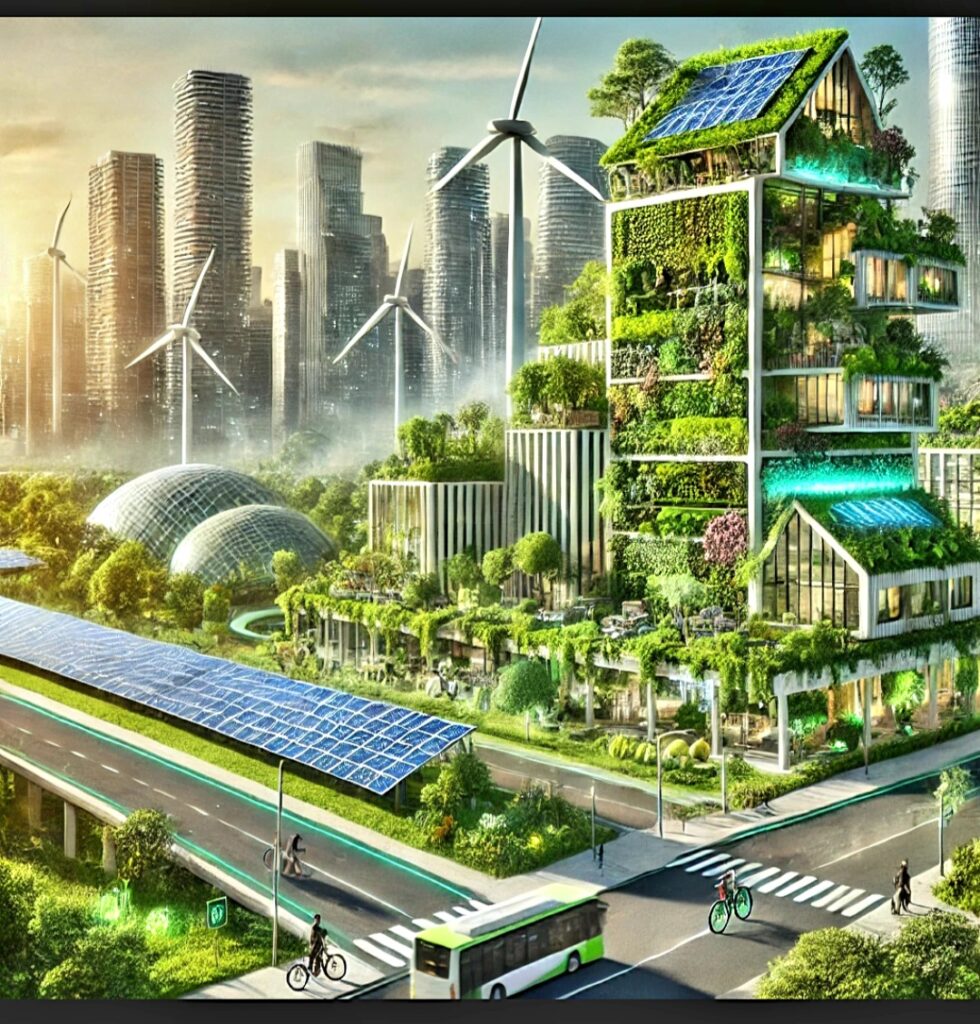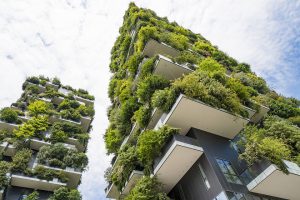
Sustainable technology can significantly enhance energy efficiency by optimizing energy use, reducing waste, and promoting renewable sources. Here’s how it can be effective:
- Energy-Saving Technologies
LED Lighting: Consumes up to 75% less energy compared to traditional incandescent bulbs and lasts longer.
Smart Appliances: Devices like energy-efficient refrigerators, air conditioners, and water heaters adapt their operation to minimize energy use.
- Renewable Energy Integration
Solar Panels: Harness sunlight to generate electricity, reducing reliance on fossil fuels.
Wind Turbines: Provide a clean and renewable source of power.
Battery Storage Systems: Store excess energy from renewables for later use, ensuring consistent energy availability.
- Smart Grid Technology
Demand Response Systems: Adjust power distribution based on real-time demand, reducing energy waste.
Grid Automation: Integrates renewable energy sources efficiently, minimizing transmission losses.
- Building Energy Efficiency
Insulation and Design: Advanced materials like aerogels reduce heating and cooling needs.
Smart Thermostats: Automatically regulate indoor temperatures based on occupancy and weather patterns.
- Transportation Innovations
Electric Vehicles (EVs): Use energy more efficiently than combustion engines.
Public Transit Systems: Advanced routing and electric buses lower overall energy consumption.
- Industrial Applications
Energy-Efficient Equipment: High-performance motors and machinery cut down energy usage in factories.
Waste Heat Recovery: Captures and reuses heat from industrial processes.
- IoT and AI Integration
Energy Monitoring Systems: Track energy usage in real-time, helping businesses and households identify inefficiencies.
Predictive Maintenance: AI detects potential equipment failures, ensuring machines operate optimally.
Impact of Sustainable Technology in Energy Efficiency:
Lower Energy Costs: Efficient systems reduce consumption, leading to significant savings.
Environmental Benefits: Cuts greenhouse gas emissions and dependence on non-renewable resources.
Resilience: Smart systems ensure reliable energy even during peak demands or disruptions.
By leveraging sustainable technologies, we can create systems that not only conserve energy but also support long-term ecological and economic sustainability.




